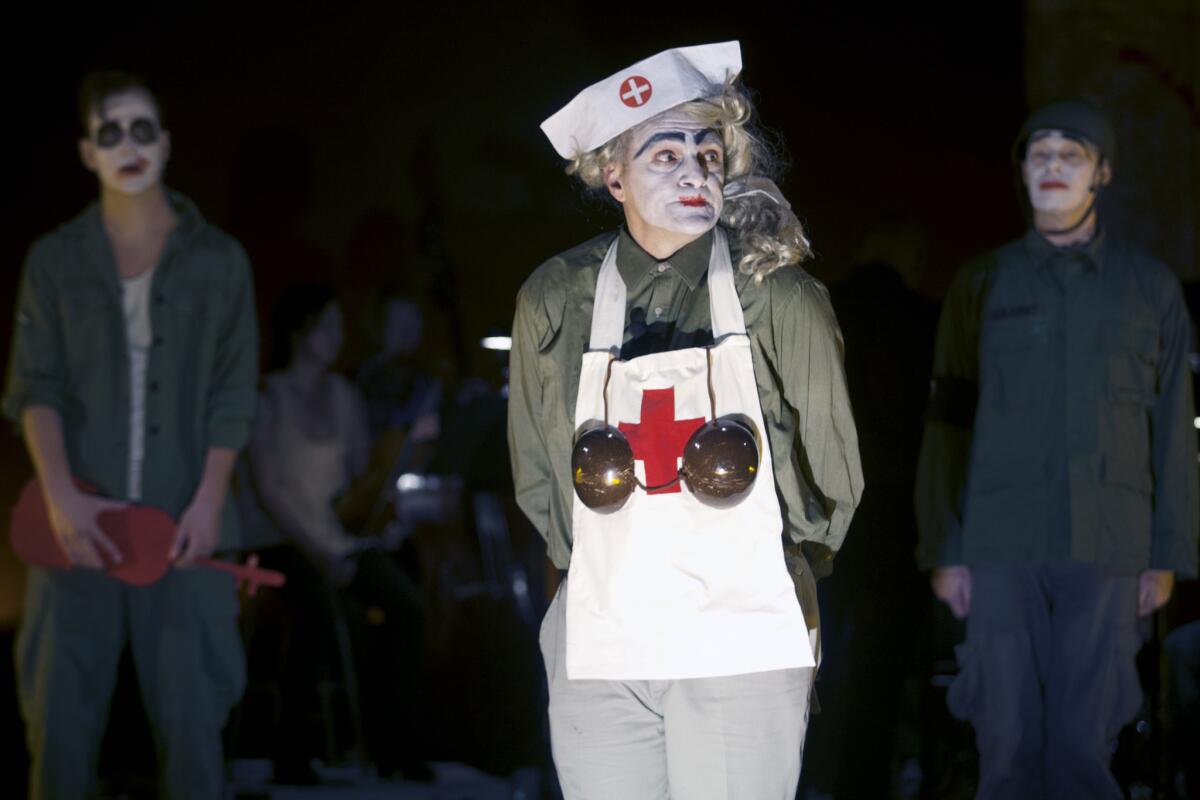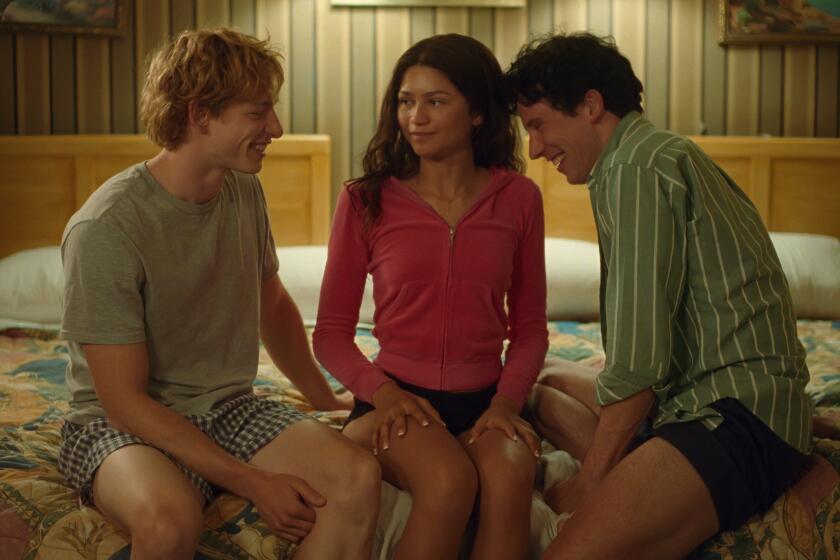For Long Beach Opera, Kurt Vonnegut-Wynton Marsalis pairing overdue

It is a double bill of opposing reactions, one a homage, the other a rejection. Yet both paths bring us to the same place: a modernization of Stravinsky’s not-so-modern classic, “L’Histoire du Soldat.”
Perhaps this is one way to frame Long Beach Opera’s pairing of Kurt Vonnegut’s “An American Soldier’s Tale” and Wynton Marsalis’ “A Fiddler’s Tale,” what director David Schweizer calls “a long overdue blind date that glows with potential.” The last performance is Saturday.
For Schweizer, hearing the two pieces of music side by side “justifies the night,” and forms the most organic aspect of the pairing.
In a post-World War I Europe that was unable to stage his lavish ballets and large orchestral works, the cash-strapped Stravinsky designed the score “to be read, played and danced” by a lean ensemble of an instrumental septet, three actors and one or more dancers.
The libretto by the Swiss author C.F. Ramuz is an adaptation of the Russian folk tale “The Runaway Soldier and the Devil,” and tells the story of a soldier returning to his village from the frontlines of the war. A chance encounter with the devil leads him to exchange his violin for unlimited wealth. It should come as no surprise that he will regret the trade.
Of the two adaptations on display, the Vonnegut is undoubtedly the more subversive, yanking the audience away from the whimsy of “Soldat’s” original libretto and placing us in more familiar territory, World War II.
Gleefully taking a wrecking ball to the “fourth wall” with the audience, the three actors in the “A Soldier’s Tale” channel Vonnegut’s stated disdain of the Ramuz text before reenacting the true story of 25-year-old U.S. Army Pvt. Eddie Slovik, the first soldier to be executed for desertion since the American Civil War.
The music, on the other hand, remains untouched, fitting the new text to a degree that makes it hard to believe they were written more than 70 years apart. This “Soldier’s Tale” culminates in a vilification of Gen. Dwight D. Eisenhower, who signed off on Slovik’s execution.
Wynton Marsalis’ take in “A Fiddler’s Tale” is born out of his obsession with the Stravinsky’s score.
“Marsalis wrote his piece specifically to conjure, channel and pay tribute to the Stravinsky,” Schweizer says. “There’s a fascination in a revelatory composer from the beginning of the century from a revelatory composer from the end of the 20th century sharing a story-telling impulse.”
This time, however, the libretto is embraced instead of rejected, with critic Stanley Crouch telling a story of a young jazz fiddler seduced by the Faustian producer Bubba B. Zeals to give up her lover, her band and her art in exchange for easy fame. It’s not World War II, but a “culture war” in a time of cheap commercialism, with a soldier replaced by a violin-armed pop starlet.
The contrasts don’t end there. In “A Fiddler’s Tale”, all the characters are played by one actor, Richard Guenveur Smith, displaying a physicality and vocal range that rocks between Brando and Beyoncé, the play-like feel of “A Soldier’s Tale” replaced by a more self-conscious theatricality.
Schweizer, however, revels in both the down-and-dirty vaudeville of the one and the jazz-inflected, spoken word feel of the other.
“It’s not about trying to make them the same, it’s about trying to find out a kind of empathy, a resonance,” he says.
------------------------------
‘An American Soldier’s Tale’ and ‘A Fiddler’s Tale’
Where: Terrace Theater, 300 Ocean Blvd., Long Beach
When: 2 p.m. Saturday
Tickets: $29-$160
Contact: (562) 432-5934 or https://www.longbeach opera.org
More to Read
The biggest entertainment stories
Get our big stories about Hollywood, film, television, music, arts, culture and more right in your inbox as soon as they publish.
You may occasionally receive promotional content from the Los Angeles Times.











